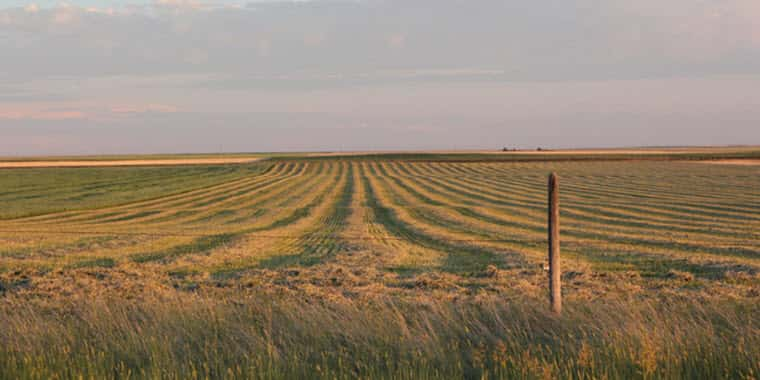The number of farms and ranches paying more in taxes would be dramatically higher if proposed tax code changes affecting agriculture become reality. The changes to the tax code that were proposed by President Biden would include reducing estate tax exemptions, eliminated stepped-up basis and imposing capital gains taxes at death. The White House proposed those changes to help pay for a sweeping infrastructure package.
Montana Senator Steve Daines told Northern Ag Network that lawmakers should be lowering capital gains and estate taxes, not raising them. Daines said that the President’s proposal would destroy the generational handoff of farms and ranches.
“I don’t think that death should be a taxable event,” Daines said. “I think it is one of the most immoral taxes we have on the books. We should permanently eliminate the death tax; not increase it and I have a bill to do that.”
Daines added that, “Many countries don’t have a death tax. You work an entire lifetime, working hard, paying taxes on your income, paying property taxes. And then to have the tax man show up at death with his hand out, asking for half of it is just immoral.”
“In Montana, we’re seeing increases in valuations across the state and so it really puts Montana farm and ranch families in the crosshairs of this death tax proposal of President Biden. The only way Montana farmers and ranchers could get through this, would be to sell off part or even all of the family farm or ranch. That is wrong and I’m fighting to make sure that doesn’t happen.”
The conversation on estate and capital gains taxes was elevated this week, when Agricultural and Food Policy Center at Texas A&M University released a study that analyzes the Democratic proposal.
Two bills including the “Sensible Taxation and Equity Promotion Act” would eliminate stepped-up basis upon death of the farm or ranch owner and the “For the 99.5 Percent Act” would decrease the estate tax exemption.
The Texas A&M study conducted by Joe Outlaw, co-director of the Agriculture Food Policy Center, found larger farm operations in particular would face significant tax challenges. The center maintains a database of 94 farms in 30 states.
“Under current tax law, only two of the 94 representative farms would be impacted by an event triggering a generational transfer,” the study found.
“By contrast, under the STEP Act, 92 of the 94 representative farms would be impacted, with additional tax liabilities incurred, averaging $726,104 per farm. Under the 99.5% Act, 41 of the 92 representative farms would be impacted, with additional tax liabilities incurred, averaging $2.17 million per farm.
“If both the STEP Act and the 99.5% Act were simultaneously implemented, 92 of the 94 representative farms would be impacted, with additional tax liabilities incurred, averaging $1.43 million per farm across the 92 representative farms.”
Rep. Glenn Thompson, R-Pa., ranking member on the House Committee on Agriculture, said during a news conference on Tuesday the proposed tax changes would make it more difficult for future generations to farm.
“For farmers and ranchers these new tax levies are not just an annoyance,” he said. “They don’t mean that a farmer will have to forego a new truck for a year, they mean an heir might have to sell off a significant chunk of the family farm or quite frankly, lose it all together.”
The Biden administration has proposed creating tax carve outs that it says will protect farmers and ranchers.
“But the details of this report illustrate just how complex farming operations can be, how they can vary across regions and commodities,” Thompson said.
“The idea that there’s one-size-fits-all exemptions will hold all family farms completely harmless is naive at best and disingenuous at worse.”
###
Northern Ag Network/DTN/Texas A&M


